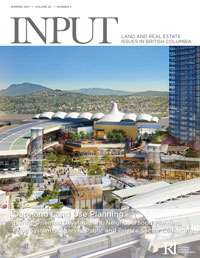Insight: REIBC blog > Future Food Security Requires Data Now
 |
Winter on a Southwest BC farm. credit: Modfos (Thinkstock)
|
Food systems in BC—and around the world—are under threat. The system of agriculture and food processing that puts food on our plates is not sufficiently resilient, making us vulnerable when it comes to food security. Climate change, rising food costs, and resource depletion are just a few of the factors that threaten our food future.
How can we manage our food systems for future resilience? The first step is to gain a better understanding of the current situation. To do this we need information—food system data—that unfortunately is in short supply. Researchers at the Institute for Sustainable Food Systems (ISFS) at KPU, led by director Kent Mullinix, have found that “…although many local governments are taking action with policy and land use planning to support local food systems, they have been doing so in the absence of accurate information to inform their decisions.”
This lack of data about local food systems spurred ISFS to a multi-year research project to develop baseline and future land use scenarios. The intent was to help governments and other stakeholders make more-informed decisions about agricultural land use to bolster food security and resilience.
 |
| Download Summer 2017 |
The research team at ISFS tracked a suite of indicators across many scenarios to report on the impacts of possible agricultural land use decisions in Southwest BC. To read about some of their findings, see “Agricultural Land Use Choices and Our Food System Future,” in the Summer 2017 issue of Input, page 26. Download Summer 2017
Find out more about ISFS’s Southwest BC Bioregion Food System Design Project
Join the conversation on Facebook
